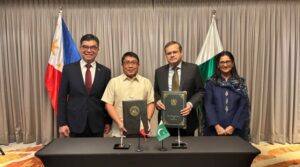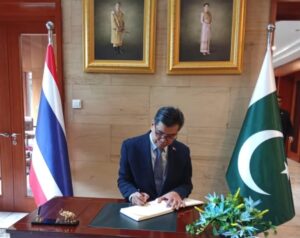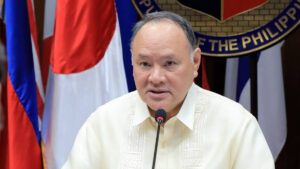Philippines Launches “Bente Pesos na Bigas Meron Na” Program to Curb Inflation and Support Farmers

Manila, The Gulf Observer: Phillipines Department of Agriculture (DA) has officially launched the “Bente Pesos na Bigas Meron Na” program in Cebu, a major initiative designed to address both rising inflation and rice oversupply, while supporting Filipino farmers and low-income households.
DA Spokesperson and Assistant Secretary Arnel de Mesa said Thursday that the initiative is aimed at tackling supply and demand issues simultaneously. “We want to emphasize that this is not just for ordinary Filipinos but for our farmers as well,” De Mesa noted during a media briefing ahead of the program’s launch.
The program will initially be piloted in the Visayas, targeting approximately 800,000 households—or about 4 million people—in regions identified as highly vulnerable to food insecurity and inflation, particularly Cebu.
While the initiative may seem new, De Mesa clarified that it is an expansion of the government’s existing rice subsidy efforts, including the “Rice for All” and PHP29-per-kilo rice programs. The current effort comes in response to the National Food Authority’s (NFA) rice surplus following a peak harvest season, with an additional 500,000 metric tons expected to be procured due to an increased budget.
Under the program, the NFA purchases palay (unhusked rice) at PHP23–24 per kilo—well above prevailing farm-gate prices—benefiting farmers directly. Meanwhile, rice is sold to consumers at a heavily subsidized price of PHP20 per kilo, with the true cost to Food Terminal Inc. (FTI) being PHP33 per kilo.
The PHP13 gap is covered by a PHP5-billion subsidy package, consisting of PHP4.5 billion for rice cost-sharing and PHP500 million for logistics and packaging. Participating local government units also contribute PHP6.50 per kilo.
“This is in line with the President’s vision to make food available, affordable, and accessible to every Filipino,” said De Mesa. He added that while the DA remains a technical agency, it now takes a more active role in ensuring food security under its broadened mandate.
A nationwide rollout of the PHP20-per-kilo rice program is being considered for January 2026, following a successful pilot phase that includes stress-testing of logistics, storage, and distribution systems.
The program aims to strike a balance between consumer needs and farmer welfare, marking a significant step in the Philippines’ efforts to stabilize food prices and strengthen agricultural productivity.


